Won-dollar exchange rate rising steadily
입력 2024.12.18 (23:48)
읽어주기 기능은 크롬기반의
브라우저에서만 사용하실 수 있습니다.
[Anchor]
What makes it even harder for these companies is the exchange rate.
The won-dollar exchange rate has been steadily rising, and recently the pace of increase has become even steeper, raising concerns.
Next, we have reporter Hwang Kyung-joo.
[Report]
The weekly trading in the foreign exchange market closed at 1,435.50 won per dollar.
After rising to nearly 1,450 won right after the martial law, it has been maintaining the mid-1,400 won range.
There were expectations that uncertainty might have eased somewhat with the passing of the impeachment bill, but it is overshadowed by external factors, especially those from the United States.
[Baek Seok-hyun/Economist at Shinhan Bank: "Domestic political variables are short-term factors for the won-dollar exchange rate. Global capital is only flowing into the U.S. market, so the exchange rate is inevitably rising."]
With the U.S. economy being the only one that is hot, everyone is trying to buy U.S. dollars.
Three months ago, one dollar was in the low 1,300 won range.
In just three months, it has risen by more than 100 won.
It is rising too quickly.
This is why there are fears that one dollar could exceed 1,500 won.
The dollar has exceeded 1,500 won only twice: during the 1997 IMF currency crisis and the 2008 financial crisis.
It has almost reached that level again.
The government is drawing a line, saying that concerns about a 'currency crisis' are excessive.
It emphasizes that Korea is a net creditor country, with more dollar bonds than dollar debts.
The foreign exchange reserves are also ranked 9th in the world.
[Rhee Chang-yong/Governor of the Bank of Korea: "From our perspective, even without a large amount of (foreign exchange market) intervention, the volatility has been somewhat reduced."]
However, the foreign exchange reserves, which exceeded 460 billion dollars in 2021, fell to around 410 billion dollars last month.
This is due to a decrease in trade surplus and the continuous release of dollars to stabilize the exchange rate.
The 400 billion dollar mark in foreign exchange reserves is a kind of psychological defense line.
Tomorrow (12.19), major countries including the U.S. and Japan will decide on their benchmark interest rates, and depending on the interest rate outlook, the exchange rate may fluctuate further.
This is KBS News, Hwang Kyung-joo.
What makes it even harder for these companies is the exchange rate.
The won-dollar exchange rate has been steadily rising, and recently the pace of increase has become even steeper, raising concerns.
Next, we have reporter Hwang Kyung-joo.
[Report]
The weekly trading in the foreign exchange market closed at 1,435.50 won per dollar.
After rising to nearly 1,450 won right after the martial law, it has been maintaining the mid-1,400 won range.
There were expectations that uncertainty might have eased somewhat with the passing of the impeachment bill, but it is overshadowed by external factors, especially those from the United States.
[Baek Seok-hyun/Economist at Shinhan Bank: "Domestic political variables are short-term factors for the won-dollar exchange rate. Global capital is only flowing into the U.S. market, so the exchange rate is inevitably rising."]
With the U.S. economy being the only one that is hot, everyone is trying to buy U.S. dollars.
Three months ago, one dollar was in the low 1,300 won range.
In just three months, it has risen by more than 100 won.
It is rising too quickly.
This is why there are fears that one dollar could exceed 1,500 won.
The dollar has exceeded 1,500 won only twice: during the 1997 IMF currency crisis and the 2008 financial crisis.
It has almost reached that level again.
The government is drawing a line, saying that concerns about a 'currency crisis' are excessive.
It emphasizes that Korea is a net creditor country, with more dollar bonds than dollar debts.
The foreign exchange reserves are also ranked 9th in the world.
[Rhee Chang-yong/Governor of the Bank of Korea: "From our perspective, even without a large amount of (foreign exchange market) intervention, the volatility has been somewhat reduced."]
However, the foreign exchange reserves, which exceeded 460 billion dollars in 2021, fell to around 410 billion dollars last month.
This is due to a decrease in trade surplus and the continuous release of dollars to stabilize the exchange rate.
The 400 billion dollar mark in foreign exchange reserves is a kind of psychological defense line.
Tomorrow (12.19), major countries including the U.S. and Japan will decide on their benchmark interest rates, and depending on the interest rate outlook, the exchange rate may fluctuate further.
This is KBS News, Hwang Kyung-joo.
■ 제보하기
▷ 카카오톡 : 'KBS제보' 검색, 채널 추가
▷ 전화 : 02-781-1234, 4444
▷ 이메일 : kbs1234@kbs.co.kr
▷ 유튜브, 네이버, 카카오에서도 KBS뉴스를 구독해주세요!
- Won-dollar exchange rate rising steadily
-
- 입력 2024-12-18 23:48:25
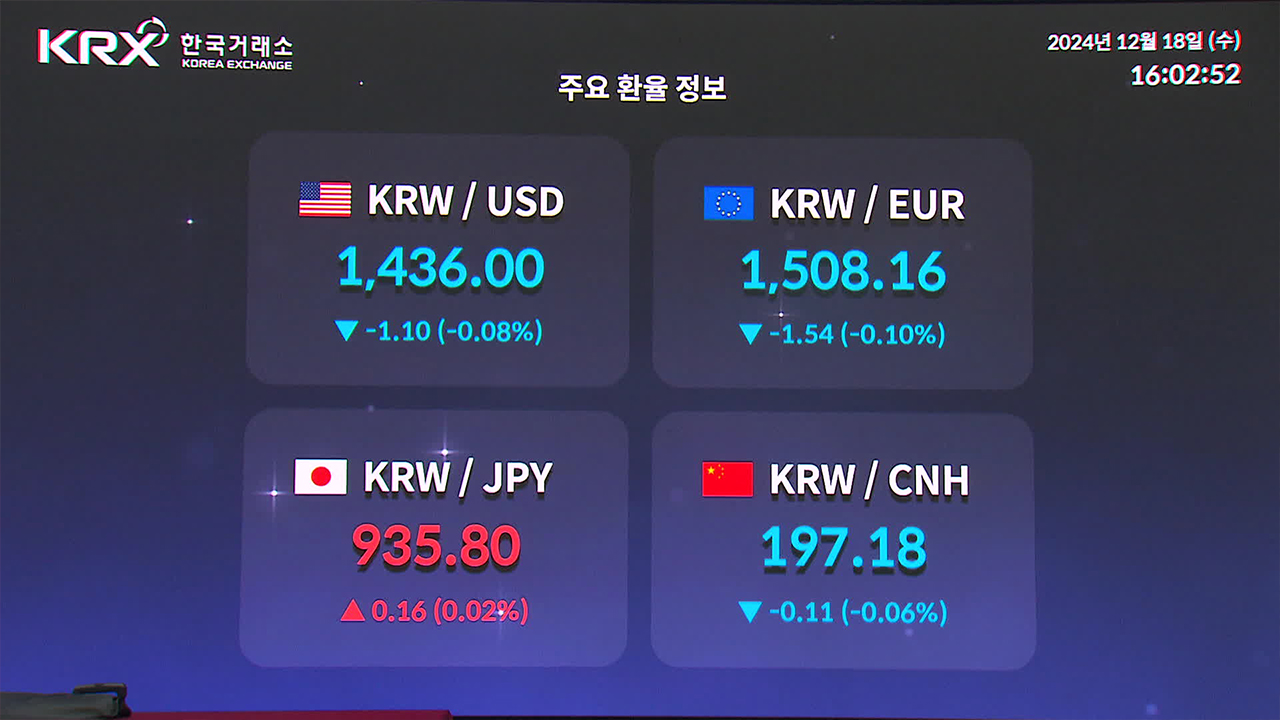
[Anchor]
What makes it even harder for these companies is the exchange rate.
The won-dollar exchange rate has been steadily rising, and recently the pace of increase has become even steeper, raising concerns.
Next, we have reporter Hwang Kyung-joo.
[Report]
The weekly trading in the foreign exchange market closed at 1,435.50 won per dollar.
After rising to nearly 1,450 won right after the martial law, it has been maintaining the mid-1,400 won range.
There were expectations that uncertainty might have eased somewhat with the passing of the impeachment bill, but it is overshadowed by external factors, especially those from the United States.
[Baek Seok-hyun/Economist at Shinhan Bank: "Domestic political variables are short-term factors for the won-dollar exchange rate. Global capital is only flowing into the U.S. market, so the exchange rate is inevitably rising."]
With the U.S. economy being the only one that is hot, everyone is trying to buy U.S. dollars.
Three months ago, one dollar was in the low 1,300 won range.
In just three months, it has risen by more than 100 won.
It is rising too quickly.
This is why there are fears that one dollar could exceed 1,500 won.
The dollar has exceeded 1,500 won only twice: during the 1997 IMF currency crisis and the 2008 financial crisis.
It has almost reached that level again.
The government is drawing a line, saying that concerns about a 'currency crisis' are excessive.
It emphasizes that Korea is a net creditor country, with more dollar bonds than dollar debts.
The foreign exchange reserves are also ranked 9th in the world.
[Rhee Chang-yong/Governor of the Bank of Korea: "From our perspective, even without a large amount of (foreign exchange market) intervention, the volatility has been somewhat reduced."]
However, the foreign exchange reserves, which exceeded 460 billion dollars in 2021, fell to around 410 billion dollars last month.
This is due to a decrease in trade surplus and the continuous release of dollars to stabilize the exchange rate.
The 400 billion dollar mark in foreign exchange reserves is a kind of psychological defense line.
Tomorrow (12.19), major countries including the U.S. and Japan will decide on their benchmark interest rates, and depending on the interest rate outlook, the exchange rate may fluctuate further.
This is KBS News, Hwang Kyung-joo.
What makes it even harder for these companies is the exchange rate.
The won-dollar exchange rate has been steadily rising, and recently the pace of increase has become even steeper, raising concerns.
Next, we have reporter Hwang Kyung-joo.
[Report]
The weekly trading in the foreign exchange market closed at 1,435.50 won per dollar.
After rising to nearly 1,450 won right after the martial law, it has been maintaining the mid-1,400 won range.
There were expectations that uncertainty might have eased somewhat with the passing of the impeachment bill, but it is overshadowed by external factors, especially those from the United States.
[Baek Seok-hyun/Economist at Shinhan Bank: "Domestic political variables are short-term factors for the won-dollar exchange rate. Global capital is only flowing into the U.S. market, so the exchange rate is inevitably rising."]
With the U.S. economy being the only one that is hot, everyone is trying to buy U.S. dollars.
Three months ago, one dollar was in the low 1,300 won range.
In just three months, it has risen by more than 100 won.
It is rising too quickly.
This is why there are fears that one dollar could exceed 1,500 won.
The dollar has exceeded 1,500 won only twice: during the 1997 IMF currency crisis and the 2008 financial crisis.
It has almost reached that level again.
The government is drawing a line, saying that concerns about a 'currency crisis' are excessive.
It emphasizes that Korea is a net creditor country, with more dollar bonds than dollar debts.
The foreign exchange reserves are also ranked 9th in the world.
[Rhee Chang-yong/Governor of the Bank of Korea: "From our perspective, even without a large amount of (foreign exchange market) intervention, the volatility has been somewhat reduced."]
However, the foreign exchange reserves, which exceeded 460 billion dollars in 2021, fell to around 410 billion dollars last month.
This is due to a decrease in trade surplus and the continuous release of dollars to stabilize the exchange rate.
The 400 billion dollar mark in foreign exchange reserves is a kind of psychological defense line.
Tomorrow (12.19), major countries including the U.S. and Japan will decide on their benchmark interest rates, and depending on the interest rate outlook, the exchange rate may fluctuate further.
This is KBS News, Hwang Kyung-joo.
-
-
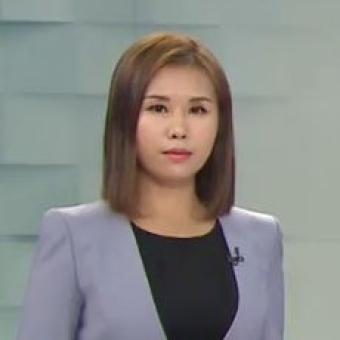
황경주 기자 race@kbs.co.kr
황경주 기자의 기사 모음
-
이 기사가 좋으셨다면
-
좋아요
0
-
응원해요
0
-
후속 원해요
0










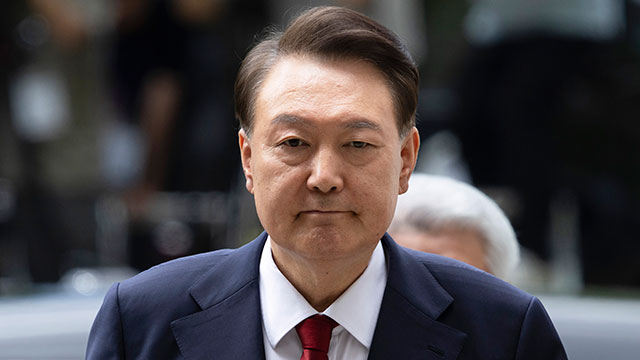
![[속보] 내란특검, 조태용 전 국정원장 주거지 등 8곳 압수수색](/data/news/2025/07/16/20250716_amIepj.jpg)
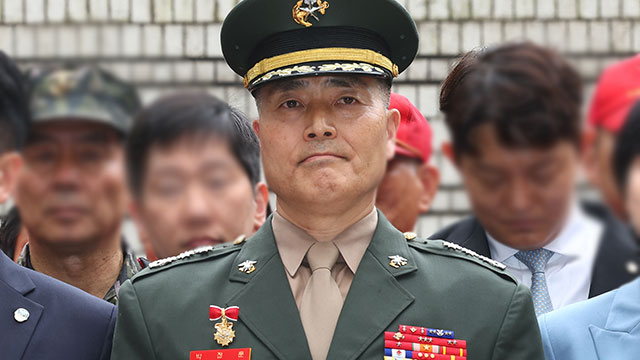
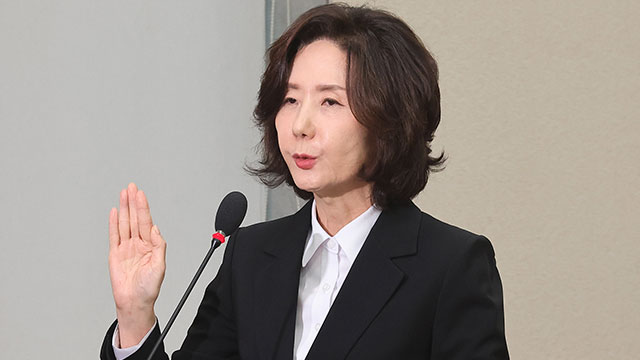

이 기사에 대한 의견을 남겨주세요.